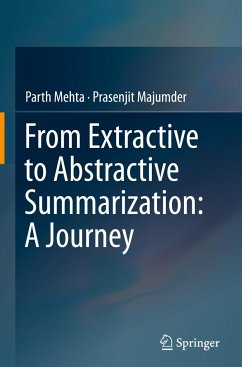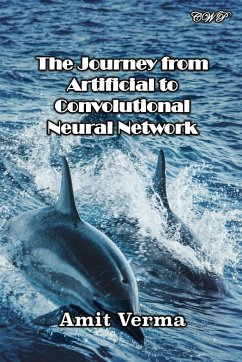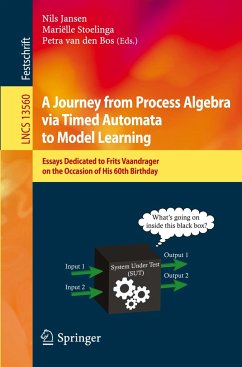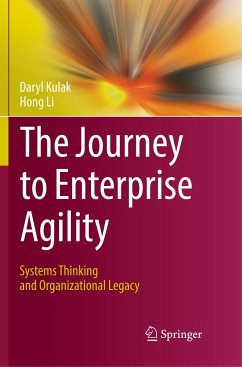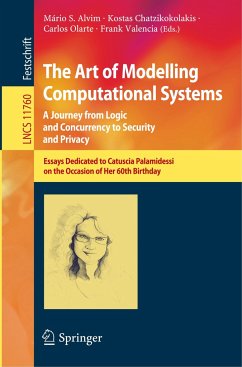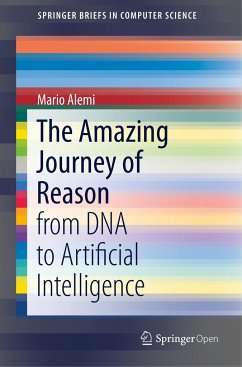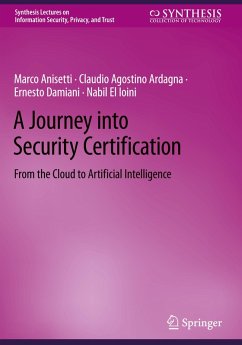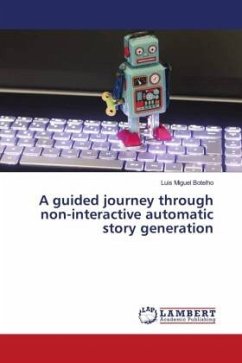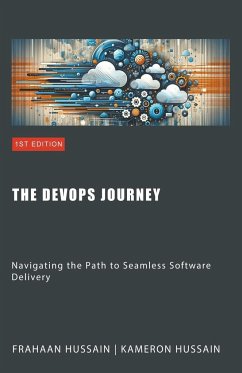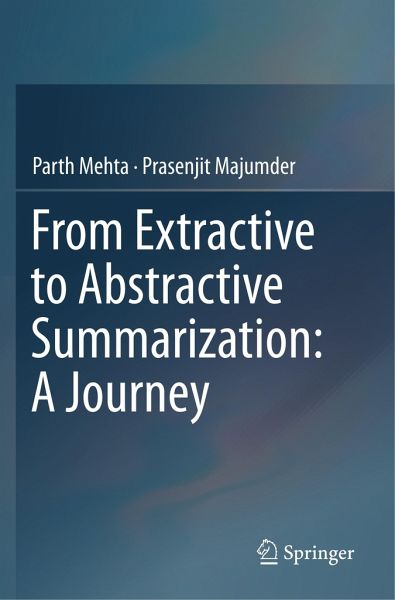
From Extractive to Abstractive Summarization: A Journey
Versandkostenfrei!
Versandfertig in 6-10 Tagen
76,99 €
inkl. MwSt.
Weitere Ausgaben:

PAYBACK Punkte
38 °P sammeln!
This book describes recent advances in text summarization, identifies remaining gaps and challenges, and proposes ways to overcome them. It begins with one of the most frequently discussed topics in text summarization - 'sentence extraction' -, examines the effectiveness of current techniques in domain-specific text summarization, and proposes several improvements. In turn, the book describes the application of summarization in the legal and scientific domains, describing two new corpora that consist of more than 100 thousand court judgments and more than 20 thousand scientific articles, with ...
This book describes recent advances in text summarization, identifies remaining gaps and challenges, and proposes ways to overcome them. It begins with one of the most frequently discussed topics in text summarization - 'sentence extraction' -, examines the effectiveness of current techniques in domain-specific text summarization, and proposes several improvements. In turn, the book describes the application of summarization in the legal and scientific domains, describing two new corpora that consist of more than 100 thousand court judgments and more than 20 thousand scientific articles, with the corresponding manually written summaries. The availability of these large-scale corpora opens up the possibility of using the now popular data-driven approaches based on deep learning. The book then highlights the effectiveness of neural sentence extraction approaches, which perform just as well as rule-based approaches, but without the need for any manual annotation. As a next step, multiple techniques for creating ensembles of sentence extractors - which deliver better and more robust summaries - are proposed. In closing, the book presents a neural network-based model for sentence compression. Overall the book takes readers on a journey that begins with simple sentence extraction and ends in abstractive summarization, while also covering key topics like ensemble techniques and domain-specific summarization, which have not been explored in detail prior to this.



